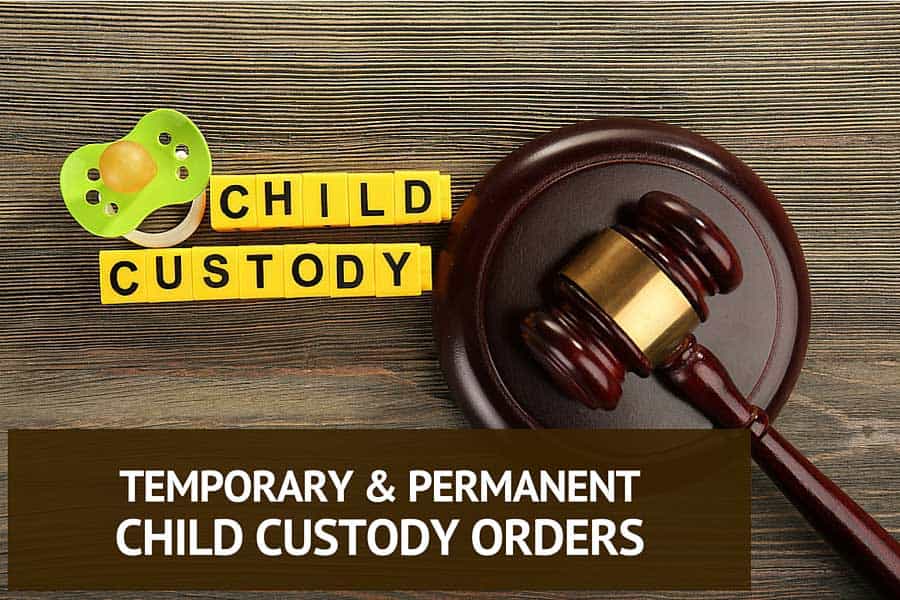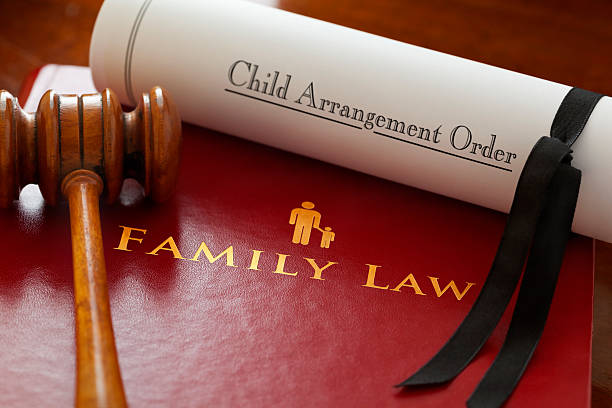- M-51, Muneer Mobile Mall, Block 17, Near Perfume Chowk & Jauhar Chowrangi, Gulistan-e-Jauhar
Child Adoption | Child Adoption In Pakistan | Child Adoption Legal Framework
Child Adoption Procedure in Pakistan & Child Adoption Services
Child Adoption Procedure in Pakistan & Child Adoption Services worldwide are at the core of Right Law Associates (Pvt) Ltd’s mission to provide expert legal assistance in the sensitive and significant area of adoption. With a dedicated team of experienced lawyers spread across offices in Karachi, Islamabad, and Lahore, we are committed to guiding deserving families through the complexities of adoption proceedings with compassion, expertise, and a deep understanding of the legal nuances involved. Our comprehensive approach to child adoption legal services extends globally, ensuring that families around the world have access to the support and guidance they need to navigate the adoption process successfully. Whether in Pakistan or beyond, Right Law Associates (Pvt) Ltd remains a trusted partner in the journey of building families through adoption, empowering individuals to open their hearts and homes to children in need of love and stability. By upholding the highest standards of professionalism and integrity, we strive to make the dream of adoption a reality for deserving families, creating brighter futures for children and parents alike.
Child Adoption Legal Process in Pakistan
Child adoption in Pakistan is a compassionate and legally regulated process, offering hope to countless children in need of loving homes. This procedure involves a thorough assessment of prospective parents’ eligibility and an intricate legal framework to ensure the best interests of the child. Child adoption agencies in Pakistan work diligently to match children with caring families, prioritizing the well-being and stability of each child throughout the adoption journey. If you’re considering child adoption in Pakistan, consult with qualified experts to navigate the process successfully and provide a secure and nurturing environment for a child in need.
Child Adoption Legal Framework in Pakistan
Child adoption in Pakistan is governed by the Guardians and Wards Act of 1890. The Act does not explicitly provide for adoption, but it does allow for the appointment of guardians for minors. Guardians are responsible for the care and upbringing of children, and they have many of the same rights and responsibilities as parents.
- To adopt a child in Pakistan, a person must first apply to the court for guardianship of the child. The court will consider many factors when deciding whether to grant custody, including the best interests of the child, the suitability of the guardian, and the consent of the child’s parents or guardians.
- Once the court has granted guardianship, the guardian will have the same rights and responsibilities as the child’s biological parents. The guardian will be responsible for the child’s care, upbringing, and education. The guardian will also be entitled to inherit from the child.
- It is important to note that there is no formal process for adoption in Pakistan. The only way to adopt a child is to obtain guardianship of the child from the court
Why Consider Child Adoption in Pakistan?
There are many reasons to consider child adoption in Pakistan. Here are a few:
- To give a child a loving home. Many children in Pakistan are orphaned, abandoned, or living in poverty. Adoption can provide these children with a loving home and a chance to reach their full potential.
- To grow your family. If you are unable to have biological children, adoption can be a great way to increase your family.
- To make a difference in a child’s life. Adoption can be a life-changing experience for both the child and the adoptive parents. It is a chance to make a real difference in the world.
In addition to these general reasons, there are many specific benefits to adopting a child in Pakistan. For example, the Pakistani government offers many financial incentives to adoptive parents, such as tax breaks and adoption subsidies. Additionally, the Pakistani adoption process is relatively straightforward and can be completed in months.
If you are considering adopting a child in Pakistan, there are many resources available to help you. You can contact the Central Adoption Resource Authority (CARA) or a licensed adoption agency for more information.

Types of Child Adoption in Pakistan
In Pakistan, child adoption takes various forms, each with its own legal and cultural nuances. The primary types include domestic adoption, where a child is adopted within the country, and international adoption, which involves adopting a child from another nation. Additionally, kinship adoption allows relatives to provide a loving home, while step-parent adoption lets a step-parent legally adopt their spouse’s child. Understanding these diverse adoption options is crucial for those seeking to expand their families through this noble process.
1. Domestic Child Adoption in Pakistan
Domestic adoption in Pakistan is governed by the Guardians and Wards Act of 1890. The Act sets out the following requirements for domestic adoption:
- The child must be a Pakistani citizen.
- The adoptive parents must be Pakistani citizens or have a valid visa to reside in Pakistan.
- The adoptive parents must be at least 21 years old and at least 21 years older than the child.
- The adoptive parents must be mentally and physically capable of caring for the child.
- The adoptive parents must have a good moral character.
- The adoption must be in the best interests of the child.
To adopt a child in Pakistan, the adoptive parents must file an application with the District Court in the district where they reside. The following documents must accompany the application:
- Copies of the adoptive parents’ National Identity Cards (NICs)
- Copies of the child’s birth certificate and NIC (if the child is over 18 years old)
- A medical certificate for the child
- A police certificate for the adoptive parents
- A social inquiry report on the adoptive parents and the child
The court will hold a hearing to determine whether to approve the adoption. If the court approves the adoption, it will issue an adoption decree. The adoption decree will be registered with the National Database and Registration Authority (NADRA).
2. International Child Adoption in Pakistan
International adoption in Pakistan is a complex process governed by the Central Adoption Authority (CAA). The CAA is a government agency responsible for overseeing all adoptions in Pakistan, including international adoptions.
- To adopt a child from Pakistan, foreign nationals must first obtain a Certificate of Eligibility (COE) from the CAA. The COE document states that foreign nationals can adopt a child from Pakistan. To receive a COE, foreign nationals must apply to the CAA, along with several supporting documents, such as a home study report, medical reports, and financial statements.
- Once the foreign nationals have obtained a COE, they can begin matching with a child. The CAA will provide foreign nationals with available children for adoption. The foreign nationals can then review the list of children and select a child they would like to adopt.
- Once the foreign nationals have selected a child, they must file an adoption petition with the High Court. The High Court will then hold a hearing to determine whether the adoption is in the best interests of the child. If the High Court approves the adoption, the foreign nationals can return the child to their home country.

3. Foster Care and Guardianship Child Adoption in Pakistan
Foster care and guardianship are two alternative ways to provide care for children in Pakistan who are unable to live with their biological parents.
Foster care is a temporary placement arrangement in which a child is placed in the care of a foster family. Foster families are typically licensed by the government and provide care for children of all ages. Foster care placements can last for a few weeks or several years, depending on the child’s individual needs.
Guardianship is a legal arrangement in which a person or couple is given the legal authority to care for a child. Guardians can decide about the child’s education, healthcare, etc. Guardianship can be temporary or permanent.
- In Pakistan, foster care and guardianship are regulated by the Guardian and Wards Act 1890. The Guardian and Wards Act provides that anyone can apply to the court to be appointed as a child’s guardian. The court will consider the best interests of the child when deciding guardianship.
- Foster care and guardianship are essential options for children in Pakistan who are unable to live with their biological parents. These arrangements can provide children with a safe and loving home and help them reach their full potential.
Eligibility and Requirements for Child Adoption in Pakistan
To be eligible to adopt a child in Pakistan, you must meet the following requirements:
- Be a Muslim (unless the agencies know they are placing a Christian Child, they cannot place a Muslim child with a Christian family)
- Be married for at least three years
- Be at least 25 years of age
- Be able to afford to raise the child
- Atleast one of the parents must be of Pakistani origin or eligible for a NICOP or CNIC (A requirement for foreigners only)
You must also submit the following documents to the court:
- Application form
- Medical certificate
- Police clearance certificate
- Income certificate
- Character certificate from two witnesses
- Consent of the child’s biological parents or guardians (if applicable)
Once you have submitted all the required documents, the court will schedule a hearing to determine whether you can adopt the child. If the court approves the adoption, you will be granted guardianship of the child.

Additional Requirements For Foreign Nationals
In addition to the above requirements, foreign nationals must also meet the following criteria to adopt a child in Pakistan:
- Be a resident of a country that has a bilateral adoption treaty with Pakistan
- Obtain a home study from a qualified adoption agency in their home country
- Obtain a visa from the Pakistani embassy or consulate in their home country
Child Adoption Process in Pakistan
The adoption process in Pakistan is governed by the Child Adoption (Regulation) Act of 2016. The Act provides for a two-step adoption process:
Step 1: Registration as a prospective adoptive parent
The first step in the adoption process is registering as a prospective adoptive parent with the Central Adoption Resource Authority (CARA). To register, prospective adoptive parents must submit an application form and the following documents:
- Copies of their National Identity Cards (NICs)
- Copies of their marriage certificate or divorce decree (if applicable)
- Copies of their income tax returns
- A medical certificate
- A police clearance certificate
- A character reference from two reputable persons
Step 2: Matching with a child
Once a prospective adoptive parent is registered with CARA, they will be matched with a child eligible for adoption. The matching process is based on many factors, including the age, gender, and religion of the child and the prospective adoptive parents.
Step 3: Child Adoption Application
Once a prospective adoptive parent is matched with a child, they must submit an adoption application to CARA. The following documents must accompany the adoption application:
- A copy of the child’s birth certificate or other proof of age
- A copy of the child’s medical records
- A copy of the child’s social history report
- A home study report
Step 4: Child Adoption hearing
Once CARA has reviewed the adoption application and home study report, it will schedule an adoption hearing. The adoption hearing will be held before a judge, who will decide whether to grant the adoption.
Step 5: Child Adoption Order
If the judge grants the adoption, the judge will issue an adoption order. The adoption order will legally transfer the child from their biological parents to their adoptive parents.
Legal Procedures for Child Adoption in Pakistan
Child adoption in Pakistan is governed by the Guardians and Wards Act of 1890 and the Child Marriage Restraint Act of 1929.
To adopt a child in Pakistan, the adoptive parents must first file a petition with the District Court. The petition must include the following information:
- The names and ages of the adoptive parents
- The name, age, and gender of the child to be adopted
- The reasons for the adoption
- The consent of the child’s biological parents or guardians (if applicable)
The court will then hold a hearing to consider the petition. If the court is satisfied that the adoption is in the best interests of the child, it will grant the petition and issue an adoption order.
The adoption order will be registered with the National Database and Registration Authority (NADRA). The child will then be issued a new birth certificate with the adoptive parents’ names listed as the parents.
Here are some of the key requirements for child adoption in Pakistan:
- The adoptive parents must be at least 25 years old and must be at least 21 years older than the child to be adopted.
- The adoptive parents must be married and must be living together.
- The adoptive parents must be financially stable and able to meet the child’s needs.
- The adoptive parents must be of good moral character and must not have any criminal convictions.
Rights and Responsibilities of Child Adoption in Pakistan
Although there is no specific law on child adoption in Pakistan, it is governed under the Guardians and Wards Act of 1890. The act allows appointing a guardian for a minor child, who will be responsible for the child’s upbringing and welfare.
Rights of Adopted Children
Adopted children in Pakistan have the same rights as biological children. They have the right to education, healthcare, inheritance, and protection from violence and abuse. They also have the right to know their biological parents if they wish.
Responsibilities of Adoptive Parents
Adoptive parents have the same responsibilities as biological parents. They are responsible for providing their children with food, clothing, shelter, education, and healthcare. They must also protect their children from violence and abuse.
Additional Responsibilities of Adoptive Parents in Pakistan
In addition to the general responsibilities of adoptive parents, adoptive parents in Pakistan have a few additional duties. They must:
- Obtain a guardianship order from a court.
- Register the adoption with the National Database and Registration Authority (NADRA).
- Obtain a Child Protection Certificate (CPC) from NADRA.
- Apply for a National Identity Card (NIC) for the child.
Challenges and Concerns in Child Adoption in Pakistan
Child adoption is a complex process with both legal and social challenges in Pakistan.
Legal challenges
The main legal challenge to child adoption in Pakistan is the need for a comprehensive adoption law. The only existing law on adoption is the Muslim Family Laws Ordinance 1961, which does not explicitly provide for the adoption of children. This means there is no legal framework for the adoption process, and the courts have broad discretion in deciding whether to grant adoption orders.
Another legal challenge is the requirement for the consent of the child’s biological parents to the adoption. This can be difficult to obtain in cases where the child’s birth parents are unknown or deceased.
Social challenges
The main social challenge to child adoption in Pakistan is the stigma associated with adoption. Many people in Pakistan believe that adoption is un-Islamic, and there is a strong preference for raising children within their biological families. This stigma can make it difficult for adoptive parents to find children to adopt and to integrate the adopted child into their families.
Other social challenges include:
- The lack of awareness about adoption among the general public.
- The lack of support services for adoptive parents.
- The difficulty of obtaining birth certificates and other legal documents for adopted children.
Despite these challenges, there is a growing demand for child adoption in Pakistan. This is due to many factors, including the increasing number of orphans and abandoned children, the rising cost of living, and the changing social attitudes towards adoption.
Child Adoption In Pakistan: A Lifelong Commitment
Child adoption is a complex yet rewarding process, offering children loving homes and parents the joys of parenthood. It also contributes to breaking the cycle of poverty and fosters a compassionate society. Potential adoptive parents should research, understand the process, and seek insights from adoptive families. While it involves challenges, with love, support, and patience, adoption can be a profoundly fulfilling lifelong commitment for all parties involved.
Suppose you are considering child adoption in Pakistan. In that case, it is essential to consult with our experienced family law attorney to discuss your legal options and ensure your rights are protected.
Legal Services
- Divorce Law
- Child Custody
- Family Law
- Financial Law
- Civil Legalation
Contact: Syed Mohsin Ali Shah, Senior Legal Consultant
Phone : +92 316 6644789
Let's Connect
- 0333-1127830
- [email protected]
- Qanoon Group, B-133, Near The Meadows Banquet, Block 14, Gulistan-e-Jauhar, Karachi, Pakistan.
- Suite No. 5, 2nd Floor, Laraib Centre, Mangla Road, Karachi Company, G-9 Markaz, Islamabad Pakistan
Child Adoption Legal Services in Pakistan and Worldwide by Right Law Associates (Pvt) Ltd
Right Law Associates (Pvt) Ltd is a beacon of excellence in child adoption legal services, catering to deserving families in Pakistan and worldwide. With a steadfast commitment to upholding the highest standards of legal expertise and compassion, our team of experienced lawyers stands ready to navigate the complexities of adoption proceedings with dedication and care. Operating from offices in Karachi, Islamabad, and Lahore, Right Law Associates (Pvt) Ltd is positioned as a trusted partner for individuals seeking to expand their families through adoption. Our comprehensive approach to child adoption services encompasses a deep understanding of the legal nuances involved, ensuring that every step of the adoption process is handled with precision and sensitivity. By providing unwavering support and guidance to families throughout their adoption journey, we aim to bring hope, joy, and the promise of a brighter future to children and parents alike. With a focus on empowerment, integrity, and professionalism, Right Law Associates (Pvt) Ltd is committed to making the dream of building a family through adoption a reality for deserving individuals in Pakistan and beyond.
At Right Law Associates (Pvt) Ltd, we offer top-notch legal services in child adoption in Pakistan and beyond. With offices in Karachi, Islamabad, and Lahore, our team of experienced lawyers is committed to guiding deserving families through the intricate adoption process with compassion and expertise.
Expert Legal Assistance for Child Adoption in Pakistan
In Pakistan, expert legal assistance for child adoption is paramount in ensuring that the process is carried out smoothly and ethically. Right Law Associates (Pvt) Ltd, with its dedicated team of experienced lawyers, offers hope for families looking to expand through adoption. With a profound understanding of the legal intricacies surrounding child adoption in Pakistan, our team stands ready to provide compassionate guidance and unwavering support to deserving individuals navigating the adoption process. From Karachi to Islamabad and Lahore, our offices serve as hubs of expertise and integrity, ensuring that every step of the adoption journey is handled with care and professionalism. By upholding the highest standards of legal excellence and commitment to our clients, Right Law Associates (Pvt) Ltd aims to empower families, bring joy to children in need of a loving home, and make the dream of adoption a reality for deserving individuals across Pakistan.
Serving Deserving Families Globally
“Serving Deserving Families Globally” is not just a motto but a guiding principle at Right Law Associates (Pvt) Ltd. Our commitment to providing expert legal assistance for child adoption extends beyond borders, reaching families worldwide who are seeking to embrace the profound journey of adoption. With a focus on compassion, integrity, and professionalism, our team of experienced lawyers stands ready to support and guide deserving families through the intricate process of adoption with care and expertise. Whether in Pakistan or across the globe, our mission remains the same – to empower families, bring hope to children in need of loving homes, and positively impact the lives of those we serve. By upholding the highest standards of legal excellence and dedication to our clients, Right Law Associates (Pvt) Ltd strives to be a beacon of light for deserving families globally, ensuring that every child finds their rightful place in a loving and nurturing home.
